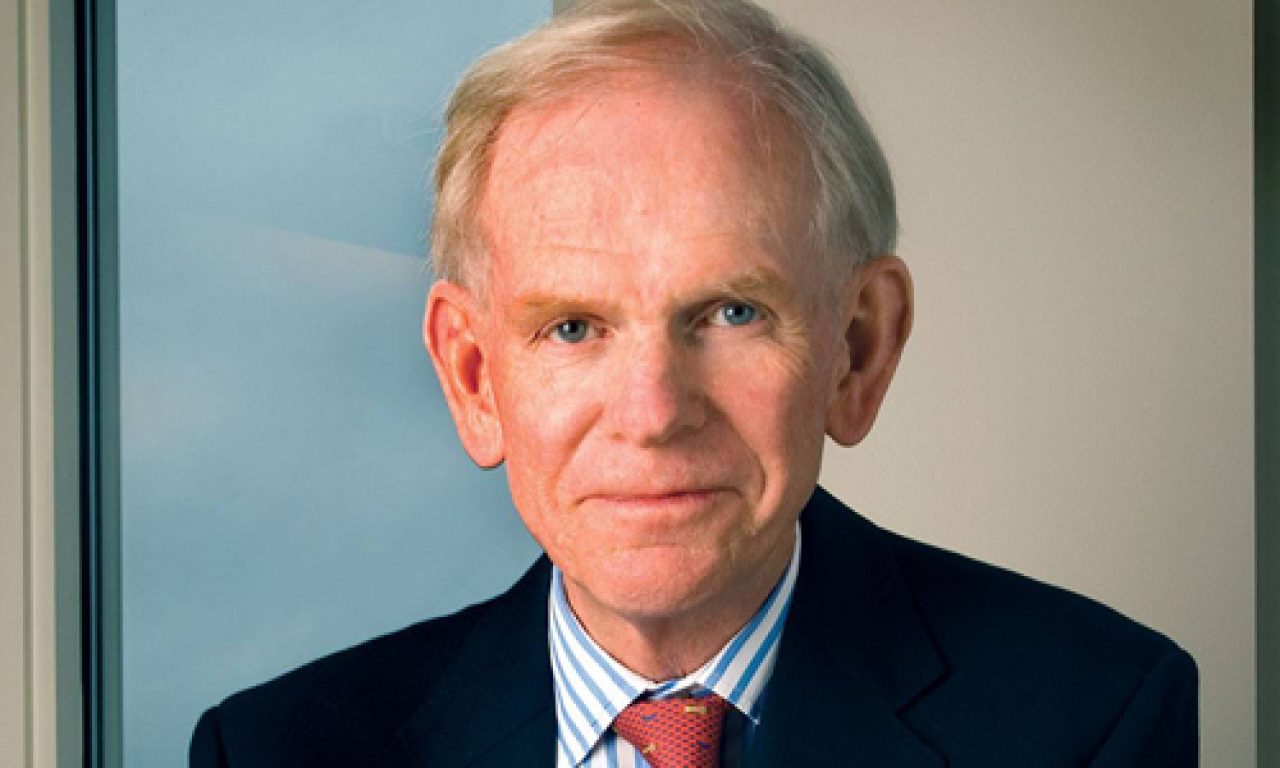Jeremy Grantham, 80, is all over the science of studying climate change and he doesn’t like what he sees. But, true to his famous fund manager roots, he is able to look at the investment implications and opportunities, while throwing some barbs at ostrich-like policy makers along the way.
In a rare webinar for Australian media narrow-cast from Boston head office last week, the British-born co-founder, chief investment strategist and director of global value-orientated quant shop GMO, set up the whys and hows for investors to ponder. As with many other of his climate change presentations over the past 18 months, he was accompanied by Lucas White, GMO lead portfolio manager for climate change policy.
GMO launched a specific climate change strategy in April 2017, which includes a range of investable options. It is focused on companies which either try to mitigate against the effects of climate change or to help the world adapt to it. Like most GMO strategies, it has a longer-term horizon, befitting the long-term nature of the economic and political challenges that the issue has created.
“The scientists have been a bit wimpy up until Trump,” Grantham said, “but last year they became more vocal… In 2018 the public also finally got the message. Seventy-three per cent of the US are now concerned about the environment, compared with 63 per cent in 2016. It’s a new ballgame.”
He pointed to a paper he published last August, ‘The Race of Our Lives Revisited’. In that, he says: “Thirty years ago the dire predictions of leading climate scientists were laughed at. Now we watch these predictions coming true and ignore the data or pretend to. So, as the world starts to burn up, we twiddle our thumbs and talk about “just another heat wave!” God help us. For we appear incapable of, or are at least unwilling to, help ourselves, and our great scientific skills increasingly appear insufficient on their own.”
Since then, Grantham said last week, the House of Representatives had gone Democratic and there was a surge of papers published around the world on the impact of climate change. One was by a group including NASA and 12 other government agencies which was a “weighty and powerful” report that the [US] Government tried to hide. It had to be published, by law, so the Government released it on Black Friday, he said, which is the Friday after Thanksgiving and the busiest shopping day on the US calendar.
Lucas White said that the types of stocks in the portfolio included electricity grid companies which were focused on including renewable supplies, energy storage companies and the makers of lithium batteries.
GMO looks to invest in the suppliers of clean energy-producing equipment and components, usually, rather than the makers of consumer products at the end of the chain. For instance, White said: “With electric vehicles, no-one knows who will win the market-share game. All the major carmakers will be cranking out electric vehicles in 10 years. We look at other ways to invest.”
With food and water supplies there had been many significant advances in technology in agricultural productivity. Agriculture was “incredibly challenged” by climate change, he said. Companies of interest included irrigation companies, precision agriculture and fertiliser companies.
“Water should be treated as the valuable resource it is, so water purification and treatment operators, etc. [are attractive]. We see a lot of growth coming down the pike for those sorts of companies. It will take decades to build out the new infrastructure required.”
A predominantly value manager, GMO believes that value can still be found in a universe that many would consider ‘growth’. “You have to be careful about valuations,” White said. “A lot of the growth in some companies may not be monetised. You have to be careful about the underlying industry dynamics.”
– G.B.

